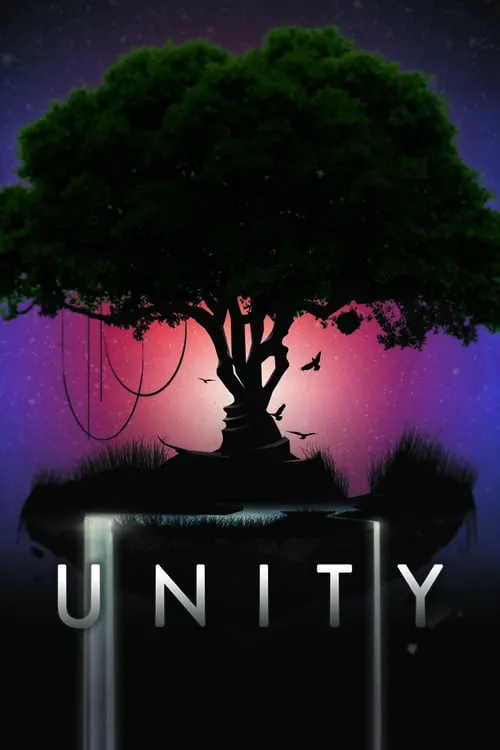Unity

Plot
In a seemingly paradoxical world where humanity has achieved remarkable breakthroughs in various fields such as science, literature, technology, philosophy, and even spirituality, one fundamental issue persists - an enduring propensity for violence and conflict. Despite possessing an intricate understanding of the intricacies of human existence and the world around us, it appears that humankind's inherent inclination towards destruction has not diminished over time. This thought-provoking film, aptly titled "Unity," undertakes a poignant examination of the underlying reasons behind humanity's inability to coexist in peace. The narrative commences by highlighting the stark contrast between human accomplishments and our capacity for violence. From the dawn of civilization to the present day, the world has witnessed an explosion of knowledge and innovation, yet the cycle of violence has continued unabated. Wars have ravaged the planet, nations have been divided, and the consequences of human actions have decimated entire ecosystems. This dichotomy serves as a haunting reminder of our collective failure to harness our intellect and wisdom towards the betterment of human society. As the film delves deeper, it becomes evident that this propensity for violence is not merely a result of individual actions, but rather a product of deeper, more intrinsic forces that define human nature. The narrative navigates through the labyrinthine corridors of human history, revealing the patterns of behavior that have consistently led us towards war and destruction. From the earliest recorded conflicts to the most recent global crises, a consistent thread of aggression, fear, and mistrust has run throughout human history, serving as a perpetual obstacle to peace. One of the primary factors contributing to this cycle of violence, the film suggests, is our intrinsic tendency towards tribalism. The need to categorize ourselves into distinct groups, be they based on ethnicity, religion, nationality, or any other identifier, serves as a fundamental obstacle to our ability to coexist peacefully. As humanity has evolved, our tribal instincts have become increasingly intertwined with complex systems of power, status, and material wealth. This cocktail of factors further inflames our tendency towards violence, as groups struggle to assert their dominance and maintain their positions within the hierarchical structure of society. Another crucial factor examined by the film is the concept of 'us versus them.' This age-old binary has led to the widespread demonization of perceived enemies, justifying violence and aggression towards those deemed outside of our group. This simplistic, black-and-white worldview, while appearing intuitive and natural, has consistently proven to be a destructive force in human history. By perpetuating this dichotomy, we have effectively legitimized our actions against those we deem 'other,' conveniently absolving ourselves of accountability and empathy. Furthermore, the film touches upon the topic of human psychology, specifically our primal fears and insecurities. In our relentless pursuit of power, dominance, and material wealth, we frequently overlook the more vulnerable aspects of human nature. Our deep-seated fears and anxieties, often stemming from childhood experiences and societal conditioning, are conveniently displaced onto external enemies, allowing us to redirect our attention away from the underlying issues. This coping mechanism serves as a misguided attempt to maintain a facade of security, but ultimately exacerbates the cycle of violence by creating a sense of perpetual threat. Lastly, the narrative also alludes to the role of systems and structures in perpetuating violence. Social, economic, and political institutions often create and maintain power imbalances, fostering a culture of inequality and resentment. As those at the top of these structures seek to maintain their privileged positions, the marginalized and vulnerable are left to bear the brunt of our destructive tendencies. The film highlights how these systemic issues have been overlooked or downplayed, allowing the root causes of violence to simmer beneath the surface, waiting to erupt in the form of conflict. Ultimately, "Unity" presents a sobering portrayal of humanity's propensity for violence, underscoring the dire need for a fundamental shift in our collective consciousness. As we continue to grapple with the complexities of human existence, we must acknowledge the destructive forces that have plagued our species for millennia. Only by examining these deeper, systemic issues, and confronting the primal fears and insecurities that drive us towards violence, can we hope to break the cycle of destruction and forge a path towards true unity and cooperation. The film serves as a poignant reminder that our capacity for violence is not an inevitability, but rather a choice, and that it is within our power to create a world where our differences no longer serve as an excuse for destruction, but rather as a celebration of diversity and individuality.
Reviews
Recommendations



